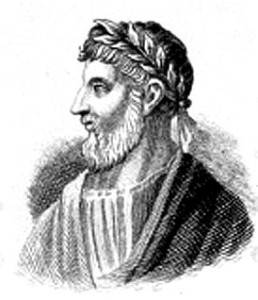Atlantides
Atlantides
Atlantides, in Greek mythology was the collective name given to the seven beautiful daughters of Atlas, the founder of Atlantis. They were also known as Pleiades or Hesperides, after their mother Hesperis. As the Hesperides they were considered the protectors of the Seven Isles of the Blest, which contained the Gardens of Atlas, their father. The Garden of the Hesperides was located, according to Eustatius in the field of Atlas.
Hercules had to locate ‘the golden apples’ in the Garden of the Hesperides. Jonas Bergman has identified the ‘golden apples’ as the oranges of Morocco, with a site near Lixus providing the Garden of the Hesperides. *[The late Michael Hübner who was also an advocate for a Moroccan site for Atlantis proposed that the fruit of the Argan tree found in the Souss-Massa region were the ‘golden apples.]*
If these interpretations are is correct, it implies that Hercules was familiar with apples but not oranges and hence he must have come from a more northerly climate; which raises a series of other questions not pertinent to this work.
Apollonius of Rhodes
Apollonius of Rhodes (Apollonius Rhodius) (c.270 BC) was the chief librarian at Alexandria during the 3nd century BC. His  best-known work is the Argonautica [0668], a reworking of the voyage of the Argonauts, in whicht he refers to the island of Atlantides. Anton Mifsud has pointed out that in early editions of this book, Apollonius located the Straits of Heracles in Syrtis Minor (Bk.IV ii.1230) as well as the existence of shoals in that gulf. However, Mifsud notes that modern translations omit this reference. Syrtis Minor was the Roman name for the Gulf of Gabés. Lucanus, who is more usually known as Lucan by English readers, echoed this same identification.
best-known work is the Argonautica [0668], a reworking of the voyage of the Argonauts, in whicht he refers to the island of Atlantides. Anton Mifsud has pointed out that in early editions of this book, Apollonius located the Straits of Heracles in Syrtis Minor (Bk.IV ii.1230) as well as the existence of shoals in that gulf. However, Mifsud notes that modern translations omit this reference. Syrtis Minor was the Roman name for the Gulf of Gabés. Lucanus, who is more usually known as Lucan by English readers, echoed this same identification.
